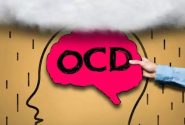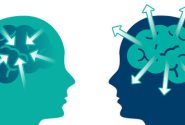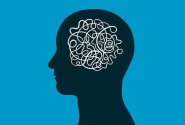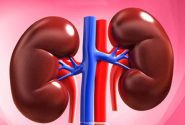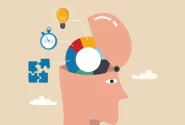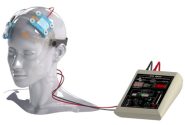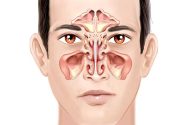به گزارش پایگاه خبری تحلیلی تسریر، به نقل از هلث دی نیوز، بر اساس تجزیه و تحلیل ۳۰ مطالعه که شامل بیش از ۳۵۰۰ زن در ۱۴ کشور یائسه می شوند، زنان به دنبال درمان ذهن آگاهی و رفتار درمانی شناختی، بهبودهای آماری قابل توجهی را در اضطراب و افسردگی تجربه کردند.
محققان نتیجه گرفتند که نتایج نشان می دهد که درمان می تواند به اندازه درمان جایگزینی هورمون در کمک به زنان برای مقابله با علائم یائسگی ارزشمند باشد.
روپال دسای، محقق ارشد روانشناسی کالج دانشگاه لندن، گفت: «[پزشکان عمومی] و ارائه دهندگان مراقبت های بهداشتی اغلب در تلاش هستند که بدانند چه چیزی فراتر از درمان پزشکی ارائه دهند.» “این تحقیق به پزشکان عمومی و بیماران کمک می کند تا گزینه های بیشتری ارائه دهند.”
مدیتیشن ذهن آگاهی به افراد می آموزد که به شدت از آنچه در لحظه حس و احساس می کنند آگاه باشند و از روش های تنفس و سایر تمرین ها برای آرامش بدن و ذهن استفاده کنند.
از سوی دیگر، درمان شناختی رفتاری (CBT) به افراد می آموزد که افکار و رفتارهای منفی را که در پاسخ به موقعیت های چالش برانگیز رخ می دهد، تشخیص دهند و پاسخ های خود را به گونه ای تنظیم کنند که مثبت و سودمندتر باشد.
این بررسی شواهد ۱۰ مطالعه را نشان داد که به تأثیر درمان شناختی رفتاری بر علائم یائسگی می پردازد و ۹ مطالعه مفید بودن مدیتیشن ذهن آگاهی را ارزیابی می کنند.
یازده مطالعه دیگر تکنیک های درمانی دیگر، از جمله مشاوره گروهی، حمایت زناشویی، مربیگری سلامت و تکنیک های آزادی عاطفی را مورد بررسی قرار دادند. نه تنها CBT و ذهن آگاهی باعث بهبود خلق و خو شدند، بلکه این درمانها در کاهش مشکلات مربوط به یائسگی «مه مغزی» در حافظه و تمرکز نیز مؤثر بودند.
به گفته محققان، نتایج نشان می دهد که CBT مقرون به صرفه ترین گزینه برای مدیریت یائسگی است. در مقایسه با سایر گزینهها، به دوره درمان کوتاهتری نیاز دارد – حدود ۱.۵ ساعت در هر جلسه و نزدیک به ۱۲ ساعت در مجموع.
مطالعه جدید در ۲۷ فوریه در مجله اختلالات عاطفی منتشر شد.
محققان خاطرنشان کردند که این یافته ها مطابق با دستورالعمل هایی است که توصیه می کنند CBT در کنار درمان جایگزینی هورمون یا به عنوان جایگزینی برای آن در نظر گرفته شود.
ایمی اسپکتور، محقق ارشد، استاد روانشناسی بالینی سالمندی در دانشگاه کالج لندن، گفت: «مدیریت یائسگی اکنون یک موضوع اولویتدار در سلامت عمومی است. با این حال، اکثر مطالعات مدیریت علائم یائسگی بر روی درمان جایگزینی هورمونی و علائم فیزیولوژیکی تمرکز دارند.»
اسپکتور در یکی از دانشگاهها گفت: «این گزینههای درمانی را برای زنانی که نگران خطرات درمان جایگزینی هورمون هستند، محدود میکند و به سلامت زنان با علائم غیرفیزیولوژیکی، مانند مه مغزی و مشکلات خلقی که بسیار شایع هستند، نادیده میگیرد.»
Mindfulness meditation and cognitive behavioral therapy can help ease the mood and sleep problems associated with menopause, a new review says.
Women experienced statistically significant improvements in anxiety and depression following mindfulness therapy and cognitive behavioral therapy, according to an analysis of 30 studies involving more than 3,500 women going through menopause in 14 countries.
The results show that therapy can be as valuable as hormone replacement therapy in helping women deal with menopause symptoms, the researchers concluded.
“[General practitioners] and healthcare providers often struggle to know what to offer beyond medical treatment,” said senior researcher Roopal Desai, a fellow in psychology with University College London. “This research will help give GPs and patients more options.”
Mindfulness meditation teaches people to be intensely aware of what they are sensing and feeling in the moment, using breathing methods and other practices to relax the body and mind.
On the other hand, cognitive behavioral therapy (CBT) teaches people to recognize negative thoughts and behaviors that occur in response to challenging situations, and to adjust their responses to be more positive and beneficial.
The evidence review uncovered 10 studies looking at the impact of cognitive behavioral therapy on menopause symptoms, and nine evaluating the helpfulness of mindfulness meditation.
Another eleven studies reviewed other therapy techniques, including group counseling, marital support, health coaching and emotional freedom techniques.
Not only did CBT and mindfulness improve mood, but these therapies also were effective in reducing menopause-related “brain fog” difficulties with memory and concentration.
The results suggest that CBT is the most cost-effective option for menopause management, researchers said. Compared to other options, it requires a shorter course of treatment — around 1.5 hours per session and nearly 12 hours total.
The new study was published Feb. 27 in the Journal of Affective Disorders.
The researchers noted these findings fall in line with guidelines recommending that CBT be considered alongside hormone replacement therapy or as an alternative to it.
“Menopause management is now a prioritized topic in public health,” said lead researcher Aimee Spector, a professor of clinical psychology of aging with University College London. “However, most studies of menopause symptom management focus on hormonal replacement therapy and physiological symptoms.”
“This restricts treatment options for women who are concerned about the risks of hormone replacement therapy and overlooks the well-being of women with non-physiological symptoms, such as brain fog and mood problems, which are highly prevalent,” Spector said in a university news release.
تسریر مراقب سلامتی شماست!












